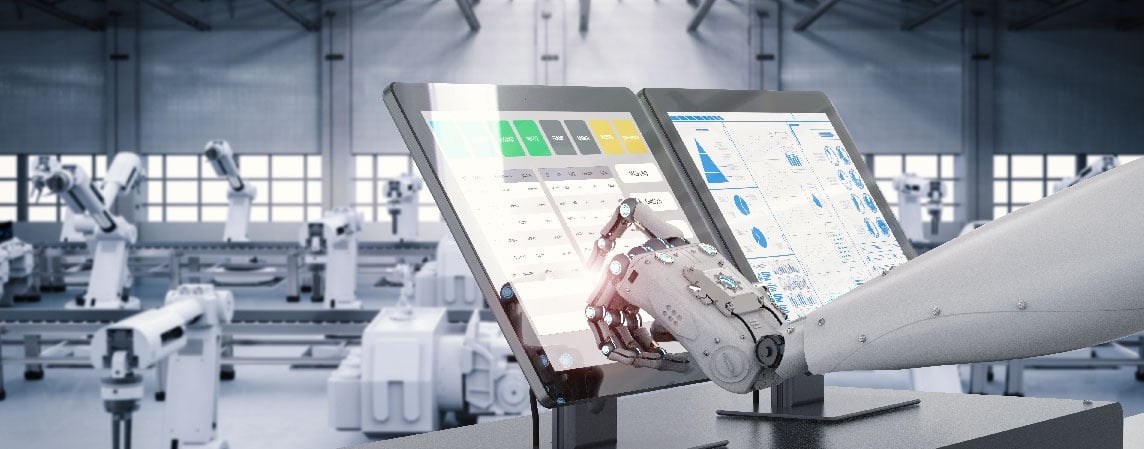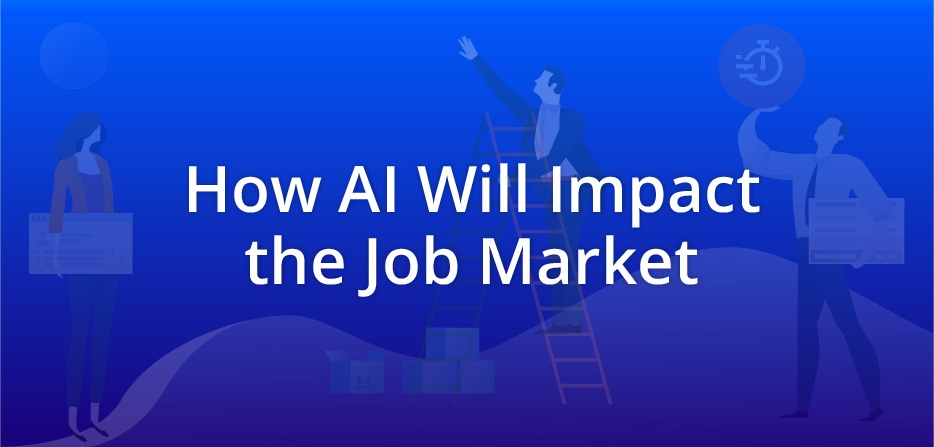By Restb.ai on 5 April 2018
For many people, perhaps the most worrisome issue about artificial intelligence is the threat of mass unemployment. Many sectors have expressed fear about losing their jobs to automation. How legitimate is this fear? Will we really see a significant rise in job automation? And is there cause for concern about mass unemployment caused by automation?
According to a 2013 Oxford University study on the susceptibility of human jobs to computerization, almost half of the jobs in the US are at risk. Carl Frey and Michael A. Osborne, the researchers behind the Oxford study, analyzed the probability of an occupation’s susceptibility to automation to determine the sectors and careers that are most at risk.
The good news is that having a job that is “at risk” of automation doesn’t mean that your job will be eliminated completely. The future is not as bleak as some may paint it to be. Yes, there are jobs that will be automated, but you won’t necessarily be out of a job.
What jobs are most at risk of automation?
Sectors that will be affected most by A.I. include finance, accounting, retail, and transport. Basically, sectors that rely on a lot of mathematics, data organization, and routine tasks are at risk.
Frey and Osborne concluded that jobs requiring a lot of routine tasks will be the ones most easily replaced by machines and robots. The top five jobs that are most at risk of automation, according to Frey and Osborne, are the following:
- Telemarketer
- Typist
- Legal secretary
- Financial accounts manager
- Routine inspector and tester
Careers in education, healthcare, and the arts and culture are less likely to be affected, as these jobs require human connections, empathy, and creativity. Some experts have stated that A.I. in these industries will be confined to support work—mechanical tasks that do not need human connections.
Others have also said that most management jobs are relatively safe. These are occupations where a high level of social intelligence is required.
In real estate, the likelihood of robots replacing human agents remains slim. Brokers have a 5% chance of losing their jobs to A.I., according to Frey and Osborne. Robots can certainly provide clients with guided tours of properties. They can also match buyers and sellers more quickly. However, the level of social skills needed to close a sale might still be beyond a robot’s capacity. A house is not just an item off a grocery list. Homes are a big part of a person’s life, and robots are not yet able to comprehend emotional attachment.
If anything, robots can take over the mundane tasks in real estate businesses, like inspection, giving virtual tours, and finance and administrative work. This can leave agents to shift their focus on other, more high-level aspects of their jobs, like negotiation.

Potential new jobs of automation
While A.I. will eliminate many human jobs, it does not mean that humans will be out of jobs. In fact, the 2017 Gartner Hype Cycle for Emerging Technologies predicts that A.I. will create more new jobs by 2020 than it will eliminate.
The key is to adapt to the changing needs of the job market. The automation of routine tasks like math calculations, object assembly and manipulation, and deliveries will require humans to adapt and learn new skills for the new jobs that technology will create.
Many of these new jobs are, unsurprisingly, technology-based. There will be a need for A.I. trainers and supervisors, those who will manage A.I. systems. Artificial intelligence may trump humans in some aspects, but they will still not work effectively without some sort of human intervention. It’s up to us to recognize these gaps and learn the skill sets that the future job industry will require.
Automation frees us to be more creative
Job automation is not an all-or-nothing scenario. We can view robots as machines that will relieve us of boring, repetitive tasks. We’ll be able to focus on things that will have a bigger impact on our industries. We can be more creative, more productive, and more fulfilled in our lives. Who knows, maybe we’ll even get rid of the 40-hour workweek and shift to a 20-hour workweek instead, thanks to our robot employees.
The lesson here for us is not to fear artificial intelligence. Rather, we should embrace it and prepare for the future by adapting to a new normal. A.I. is coming. And it’s exciting.



comments